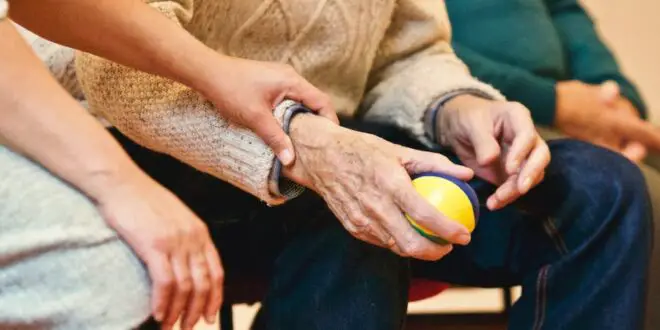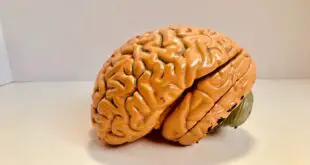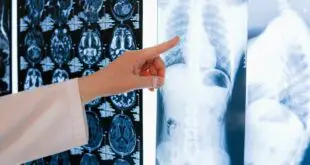Life is a beautiful journey. With each passing year, we gain more experiences, wisdom, and memories. However, aging has its own set of drawbacks. It brings noticeable changes to our bodies, minds, and health. While it is inevitable, there are specific steps we can take to age well and live a fulfilling life.
While quality supplements like GlyNAC supplement and a healthy diet are important for aging well, there are other factors that also play a crucial role. Here are ten tips for healthy aging that you can start implementing today:
Take Care of Your Skin
Your skin is the largest organ in your body, and it deserves some extra care, especially as you age. There are a few things you can do to keep your skin healthy and glowing:
- Protect your skin from the sun by using sunscreen with at least SPF 30
- Moisturize regularly to prevent dryness and wrinkles
- Use gentle skincare products that are suitable for your skin type
- Stay hydrated by drinking plenty of water
Exercise Regularly
Staying physically active is an integral part of your physical and emotional well-being. Every day, aim for at least 30 minutes of moderate exercise. You can choose to do some walking, gardening, or swimming to ensure you stay fit and mobile.
The Department of Health & Human Services prescribes moderate-intensity exercise for 2.5 to 5 hours every week. This could involve brisk walking, water aerobics, or doubles tennis.
When you engage in regular exercise, you reduce the risk of chronic diseases such as heart disease, diabetes, and osteoporosis. Additionally, it improves balance, flexibility, and overall mental health.
Eat a Nutritious Diet
Eating a balanced and nutrient-rich diet is crucial for healthy aging. As you age, your bodies require fewer calories but still need the same amount of nutrients, if not more. Make sure your diet includes a variety of fruits, vegetables, whole grains, lean protein sources, and healthy fats.
Try to limit processed foods, saturated and trans fats, and added sugars in your diet. Consult with a doctor or registered dietician for personalized recommendations based on your health needs.
Get Enough Sleep
Quality sleep is important for both your physical and mental health. As you age, it is normal to experience changes in sleep patterns, but getting enough sleep is still essential.
According to research, adults need 7-9 hours of sleep each night for optimal well-being. Practice good sleep hygiene by establishing a regular bedtime routine, avoiding stimulants like caffeine close to bedtime, and creating a comfortable sleep environment.
Stay Socially Connected
According to studies, maintaining social connections as we age is vital for our overall well-being. Engaging with friends, family, or community groups not only brightens your mood but also stimulates your mind. Regular social interactions can fend off feelings of loneliness and isolation, common in older adults.
Whether it’s a weekly catch-up with a friend, joining a local club, or volunteering, staying socially active contributes significantly to healthy aging. Remember, it’s not the quantity, but the quality of social interactions that counts. Cultivate meaningful relationships that bring joy and fulfillment to your life.
Lower Stress Levels
Chronic stress can have negative effects on both our physical and mental health, leading to conditions like heart disease and depression. As you age, it becomes even more crucial to manage stress effectively.
Identify your sources of stress and find healthy ways to cope with them. This could include exercising regularly, practicing relaxation techniques like meditation or yoga, seeking support from loved ones, or seeking professional help if needed. By reducing stress levels, you can improve your overall well-being and age gracefully.
Keep Learning
It’s never too late to learn something new, and keeping your mind active is vital for healthy aging. Take up a new hobby, enroll in a class, or learn a new skill. These activities not only stimulate the brain but also provide a sense of accomplishment and purpose.
Learning new things can also delay the onset of age-related cognitive decline. So, whether it’s learning a new language or picking up an instrument, make sure to keep your brain engaged and continuously learning.
Engage in Physical Activity
Regular physical activity plays a crucial role in maintaining health as we age. Numerous studies have found a strong correlation between a sedentary lifestyle and an elevated risk of chronic illnesses, such as heart disease and diabetes, as well as premature death. Sedentary behaviors such as prolonged sitting or inactivity can lead to weight gain, loss of muscle mass and flexibility, and an overall decline in physical health and stamina.
It’s worth mentioning that physical activity shouldn’t be confused with exercise. While physical activity is any movement produced by the skeletal muscles, exercise is planned, structured, and repetitive movements intended to improve or maintain physical fitness.
Some of the things you can do to stay active include walking, gardening, dancing, or even taking up a sport. The key is to find activities that you enjoy and incorporate them into your daily routine.
Quit Unhealthy Habits
Smoking and excessive alcohol consumption are two of the most detrimental habits for healthy aging. They not only increase the risk of various health conditions but also accelerate the aging process.
Quitting smoking can have immediate and long-term benefits on your health, including reducing the risk of heart disease, stroke, and lung cancer. Similarly, limiting alcohol intake to recommended levels or avoiding consumption can improve brain health, and liver function, and decrease the risk of developing certain cancers.
If you struggle with quitting these habits on your own, seek support from healthcare professionals or join a support group. It’s never too late to make positive changes for your health.
Find a New Hobby
Finding new hobbies is instrumental for aging well. Hobbies provide a sense of purpose and engagement in life. According to research, participating in hobbies, social and leisure activities leads to increased happiness, decreased depression, and ultimately, longer lifespan. These activities are crucial, not only for entertainment but also for overall well-being, contributing to a healthful aging process.
Final Thoughts
Aging gracefully is less about warding off wrinkles and more about embracing a lifestyle of health and happiness. Prioritize maintaining a wholesome way of life, nourishing relationships with those you hold dear, and engaging in activities that spark joy.
It’s only natural to harbor concerns about the potential complications that come with aging. If these worries start to weigh heavily on you, don’t hesitate to reach out and have a conversation about your fears with a trusted individual.
 Being Human
Being Human





